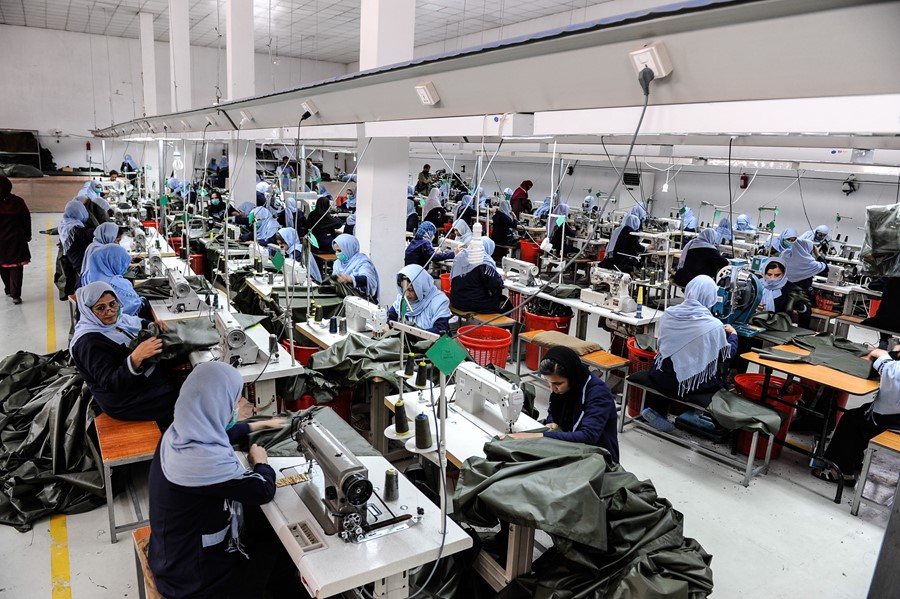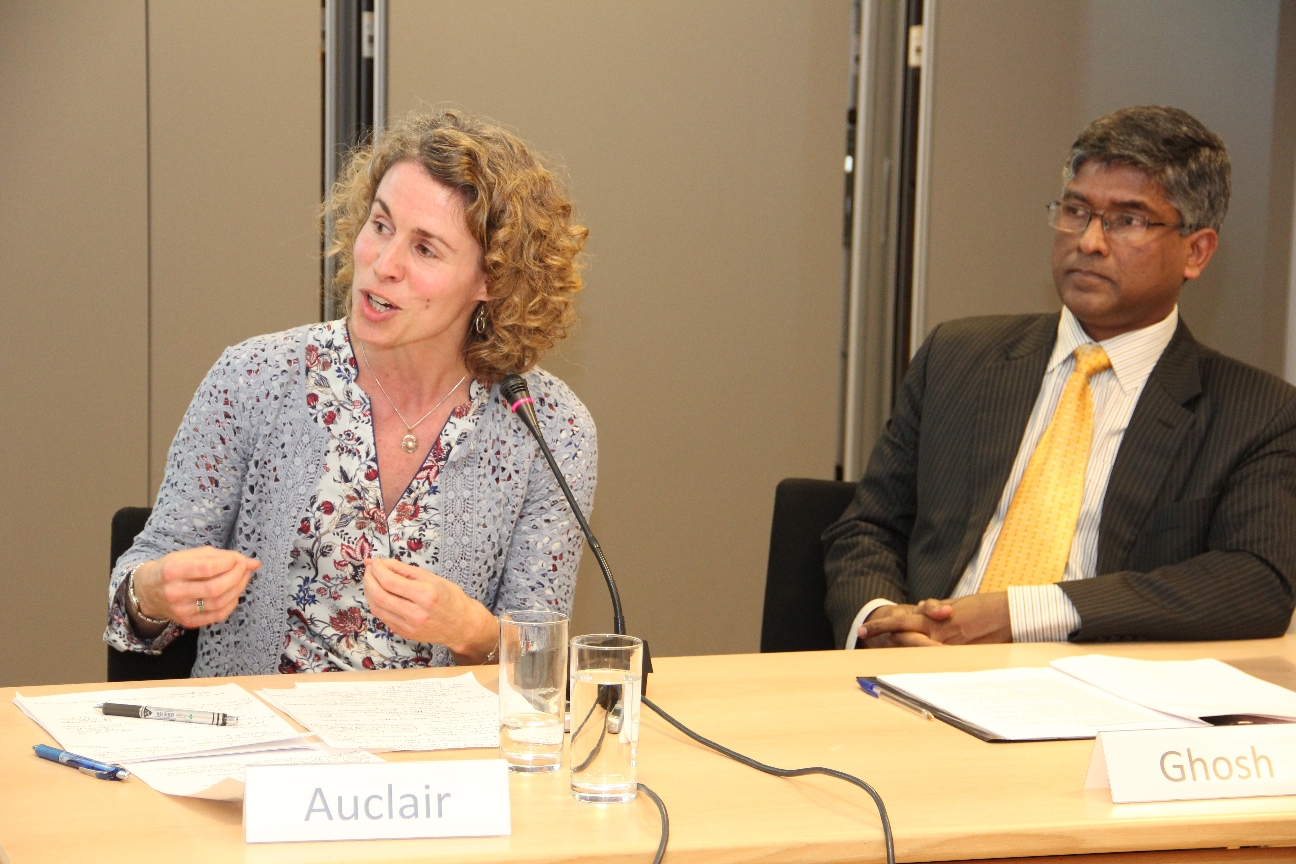
CIDSE has been involved, in the role of cooperating partner, in the event “International Responsibility in the Global Garment Industry: What Role for the EU?”
The conference was organized by sef: (Development and Peace Foundation) with the German Federal Ministry for Economic Cooperation and Development (BMZ), the Permanent Representation of the Federal Republic of Germany to the EU and the Representation of the State of North Rhine-Westphalia to the European Union.
Denise Auclair, CIDSE Senior Policy Advisor, was part of the panel of speakers together with Elin Åström Global Sustainability Business Expert (H&M), Tapan Kanti Ghosh (Embassy of Bangladesh to the European Union), Arne Lietz (MEP).
Inputs to the discussion were provided by Dr Bernhard Felmberg (German Federal Ministry for Economic Cooperation and Development) and Klaus Rudischhauser (DG Development and Cooperation, EuropeAid, Brussels).

Denise Auclair and Tapan Kanti Ghosh during the conference. Picture by sef:
Backgound information:
Most products on sale here in Europe represent the end point in a long global supply chain. Nowadays, the head offices of many transnational corporations only deal with design, management and distribution; manufacturing has been outsourced to low-wage countries. As a result, garment retail chains, for example, can sell their products more cheaply in Europe than ever before. Most of their stock comes from suppliers on the other side of the world – from China, Bangladesh or Vietnam. However, catastrophic accidents along these globalized supply chains are by no means uncommon, resulting from a lack of compliance, in countries of the Global South, with international environmental and social standards such as the UN Guiding Principles on Business and Human Rights, the OECD Guidelines for Multinational Enterprises and the ILO’s core labour standards, and from the lack of national legislation in this field.
NGOs have been drawing attention to this state of affairs for years, but their voices have often gone unheard. It was only when the Rana Plaza building in Bangladesh collapsed, leaving more than 1000 people dead and 2000 injured and causing an outcry in Europe, that efforts to introduce responsible supply chain management gained fresh momentum.
In Germany, this has led to the formation of a new Textiles Partnership between the German Government, the textile and clothing industry, retailers, trade unions and civil society. Through a collective and cooperative approach, the Partnership aims to bring about social, environmental and economic improvements all along the textile and garment supply chain. Alliances of this kind are most likely to effect change when they have broader transnational support, so it is very gratifying that this issue is being addressed at EU level as well; the European Commission is planning to launch a new initiative before the end of 2015.
With their Policy Briefing, the Development and Peace Foundation (sef:) and its cooperating partners, the German Federal Ministry for Economic cooperation and Development (BMZ), CIDSE, the Permanent Representation of the Federal Republic of Germany to the EU and the Representation of the State of North Rhine-Westphalia to the European Union, analyzed and critiqued this process, not least in the context of the European Year for Development 2015.
Key questions addressed were:
• How ambitious are these initiatives in terms of their specific objectives and timetables?
• To what extent should international responsibility be voluntary?
• How can national initiatives such as Germany’s Textiles Partnership tie in with European and international initiatives and institutions in order to harmonize standards and thus avoid
distortions of competition?
• How can companies wishing to join this type of initiative be assisted in auditing and
monitoring their supply chains?
• What lessons should be learned from non-compliance? For example, why did it take more
than two years to reach the USD 30 million target for the Rana Plaza Donors Trust Fund, set
up to provide compensation for victims and their families? How can support be mobilized
more quickly in future?
• How can and must the responsible persons at the local level (policy-makers, construction
companies, factory owners and security staff, etc.) be held to account?
See the programme of the event in attachment and the final report.
